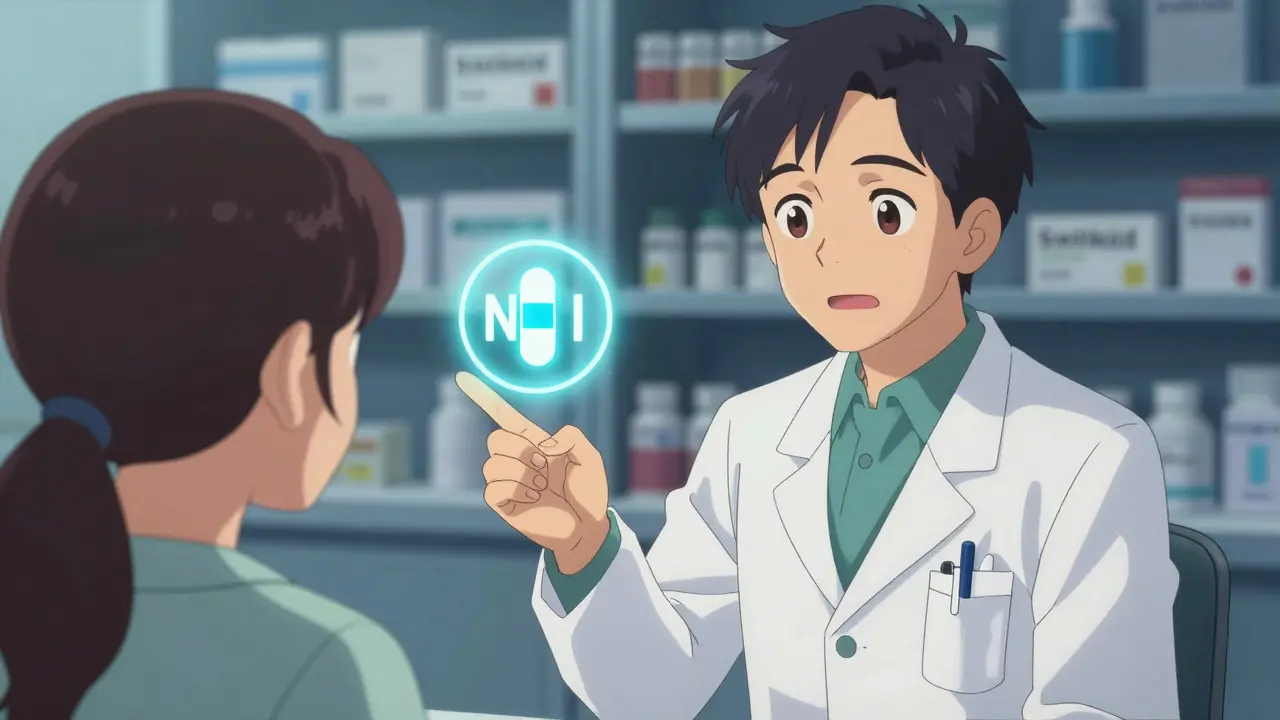Health Guides You Can Trust
Looking for straight‑forward advice about medicines, supplements, or common health conditions? You’re in the right place. We break down the facts into bite‑size pieces so you can understand what you need without the jargon.
Quick Wins for Safer Medication Use
First thing’s first: always check if a drug is legit before you take it. Look for a verified pharmacy seal, compare prices with a few other sites, and make sure a prescription is required when the drug says it is. This simple habit saves you from costly scams and protects your health.
Next, read the side‑effect list. Most meds have a short list of common reactions—like mild stomach upset or a headache—but some carry rare but serious risks. If you notice anything unusual, stop the drug and call your doctor. Trust your gut; it’s often the fastest alarm system.
Finally, keep a medication list on your fridge. Include the drug name, dose, and why you’re taking it. When you see a new prescription, check it against the list for possible interactions. A quick glance can prevent dangerous combos.
Supplements: Helpful or Hype?
Supplements can fill gaps in your diet, but they’re not a shortcut to perfect health. Before you add a new capsule, ask yourself: Do I need it? Is there a deficiency that a blood test confirms? For example, vitamin D helps bone health, but too much can cause calcium buildup. A short chat with a pharmacist or doctor keeps you from overdoing it.
Quality matters. Look for products tested by third‑party labs—look for seals from USP, NSF, or ConsumerLab. These marks show the label matches what’s inside the bottle.
Remember, supplements can interact with prescription meds. St. John’s wort, a popular mood‑boosting herb, can lower the effectiveness of birth‑control pills and some antidepressants. Always flag any new supplement to your healthcare provider.
Beyond pills, simple lifestyle tweaks boost your wellbeing. Drinking enough water, moving a little each day, and getting enough sleep are free, proven ways to feel better. Pair those habits with the right med or supplement, and you’re set for a healthier routine.
Got a specific condition in mind? Our disease pages give quick overviews, key symptoms, and how to talk to your doctor about treatment options. From cough concerns linked to lung health to enzyme deficiency signs, we keep the info practical and easy to act on.
Use this hub as your go‑to reference. Bookmark it, come back when a new prescription shows up, or share it with a friend who’s confused about a supplement. Knowledge is the cheapest, safest tool you have—let’s use it wisely.
Corticosteroid tapering is essential to avoid withdrawal symptoms like fatigue, joint pain, and adrenal crisis. Learn how to taper safely, recognize true withdrawal vs. flare, and use proven strategies like exercise and sleep to ease the process.
MoreFinishing your antibiotic course and disposing of leftovers safely stops superbugs from forming. Learn how home use of antibiotics drives resistance-and what you can do today to protect yourself and your community.
MoreProton pump inhibitors help with heartburn and ulcers, but long-term use carries real risks like fractures, low magnesium, and kidney issues. Learn when to stop and how to do it safely.
MoreOver 88% of older adults take prescription meds, but many don’t take them correctly. Cost, complexity, and lack of support are the real barriers-not forgetfulness. Here’s what actually works to improve adherence.
MoreDiscover the latest antidepressants with improved side effect profiles. Learn about SPRAVATO, Zuranolone, and Auvelity's rapid relief and how they compare to traditional SSRIs. Find out what's new in depression treatment for 2025.
MoreCultural beliefs about pill color, shape, and ingredients like gelatin can deeply affect whether patients take their generic medications. Understanding these factors is key to improving adherence and trust in healthcare.
MoreHyperacusis is a condition where everyday sounds feel painfully loud. Desensitization therapy retrains the brain to tolerate noise safely, helping people regain normal life without medication or earplugs.
MoreProper colonoscopy prep is critical for detecting colon cancer early. Learn exactly what to eat, drink, and avoid to ensure a clear exam and accurate results.
MoreDoctors rarely prescribe brand-name drugs over generics-unless there's a real medical reason. Learn when brand-name prescriptions are necessary, why generics work for most people, and how to ask the right questions to save money without risking your health.
MoreInsomnia affects nearly half of older adults, but traditional sleep meds like benzodiazepines increase fall and cognitive risks. Safer options include low-dose doxepin, melatonin, and ramelteon-plus CBT-I, which works better long-term.
MoreLearn how to safely use short-term medications after surgery with clear, practical steps on labeling, communication, storage, and avoiding deadly errors. Your recovery depends on it.
MoreAntibiotics are only effective for bacterial infections in children-not colds or viruses. Learn when they're truly needed, common side effects, how to spot real allergies, and why finishing the full course matters to prevent resistance.
More











